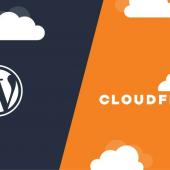WordPress tutorials coming soon
Beginning of this year, I started a new job working for an online ecommerce business that supplies teamwear for sports clubs. What is more, they offer customers a way to design their own sportwear clothing for football, cycling or running using a kit designer online tool.
My IT role was to manage all aspects of the website and development. As it turns out, it was a build with WordPress and integrated with a custom built web application using an API to consume the data. This web application handles all the pricing, attributes and shipping as well as quote ordering process that integrates with Woocommerce. One of the main reason why we needed a custom build solution is because Woocommerce just can't handle the complex shipping methods and tier pricing that we needed.
I have not touch WordPress in years and cannot remember when it was the last time I took it for a spin, though i only remember not having a great developer experience with it.
Coming from a Drupal background, I was a bit bias and think WordPress is a little inferior to Drupal in many ways but i was wrong. Both content managed systems have their own advantages and i think Kinsta sums it up nicely.
WordPress Advantages
- Ease of use – WordPress is significantly more user-friendly, especially for non-developers.
- Extensibility – WordPress’ third-party theme and plugin communities make it similarly easy to extend WordPress without the need for custom development. Some people even claim that, with the right extensions, WordPress can do anything that Drupal can do.
- Ease of getting help – WordPress’ massive global community means that it’s easy to find support for any issues that you run into.
- Lower development costs – WordPress offers more “out of the box” solutions and WordPress developers are usually more affordable than Drupal developers.
Drupal Advantages
- Custom content types and views – while WordPress does offer custom post types, most people consider Drupal’s custom content types to be a bit more flexible.
- Access controls/user permissions – whereas WordPress single-site ships with 5 basic user roles, Drupal has a built-in access control system where you can create new roles with individual permissions.
- Core support for multilingual sites – in Drupal 8, multilingual functional is baked into the core, whereas WordPress sites need to turn to third-party plugins.
- Taxonomies for handling lots of data – Drupal’s taxonomy system is more flexible than WordPress, which can make it ideal for handling lots of content.
My next concern with WordPress is security, you hear many stories that WordPress often gets hacked. While this is true but only because there are a greater number of WordPress being used than Drupal (almost 40% of the market share while Drupal has only about 2%). But to be fair, both WordPress and Drupal are secure (they are both build with PHP and mySQL). It comes down to the individual or team that manages them. WordPress are mostly managed by beginners as it is easier to get a site up and running on WordPress than Drupal. These beginners may not take security as serious as they should so it's more down to human errors. However, 3rd party plugins is really where i would be more concerned with then the core system. So it's important, you know what 3rd party plugins you are dealing with.
Anyway, the reason why i decide to write a blog about WordPress is that i will be publishing some tutorials based on my experience and what I have learnt to date for anyone who wish to operate and run a WordPress site.
I will start off with quick and easy WordPress installation, then move onto how to secure your WordPress site and tweaks for better performance. Unfortunately, it wouldn't rely on shared hosting and i will give my reasons. To top it off, I'll recommend some SEO.
I'm not sure if i will touch on anything about 3rd party themes as there are already plenty out of other review sites.
Who are the tutorials aim for? mainly small/medium sizes businesses or anyone who is interested in web development in general.
Anyway, thanks for reading and stay tuned for some WordPress tutorials coming soon.
(Update on 2 July 2022: Tutorials are up on the site now.)
- How to install and host a WordPress site
- Setting up Cloudflare with WordPress (optional but recommended)



